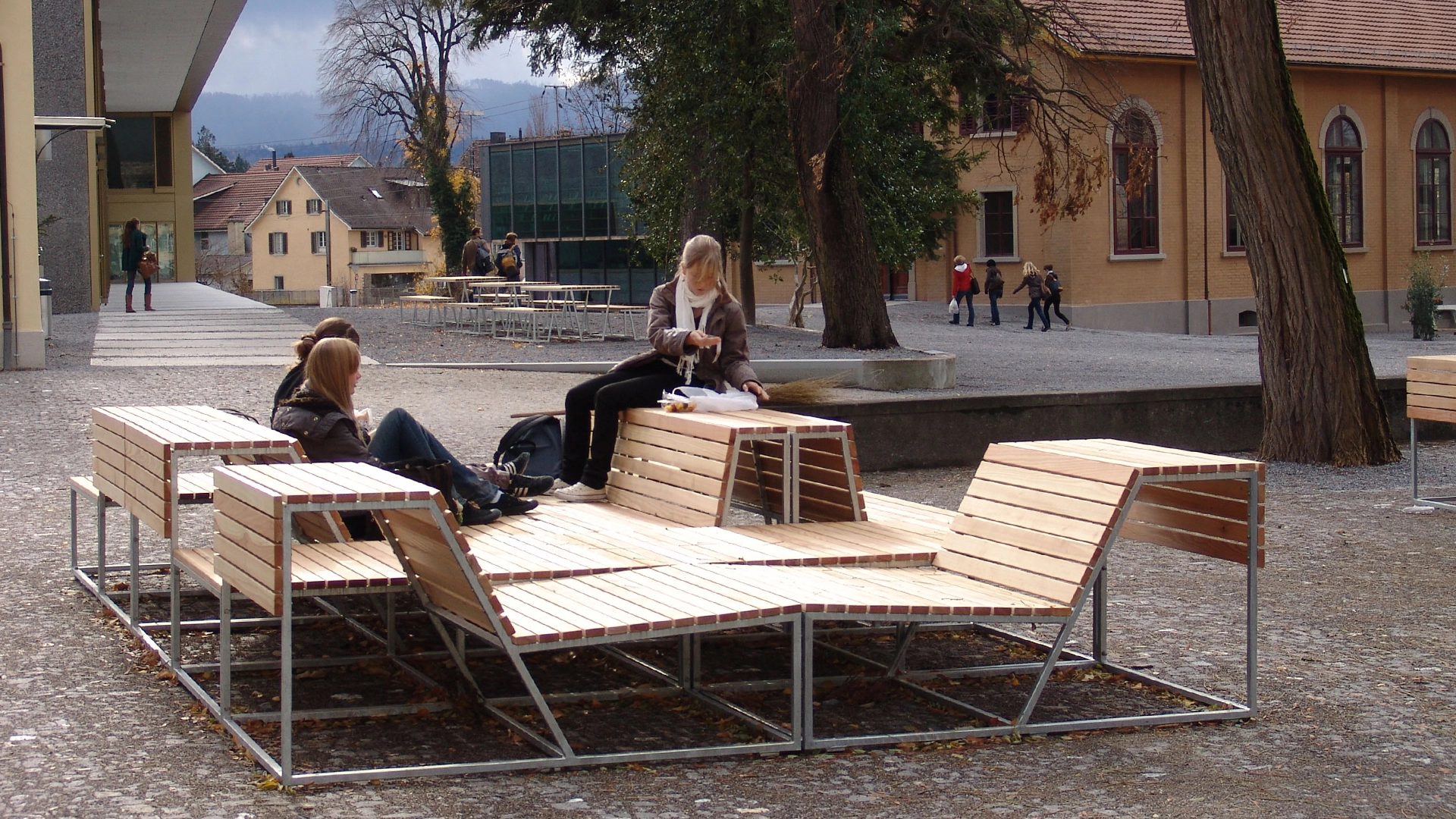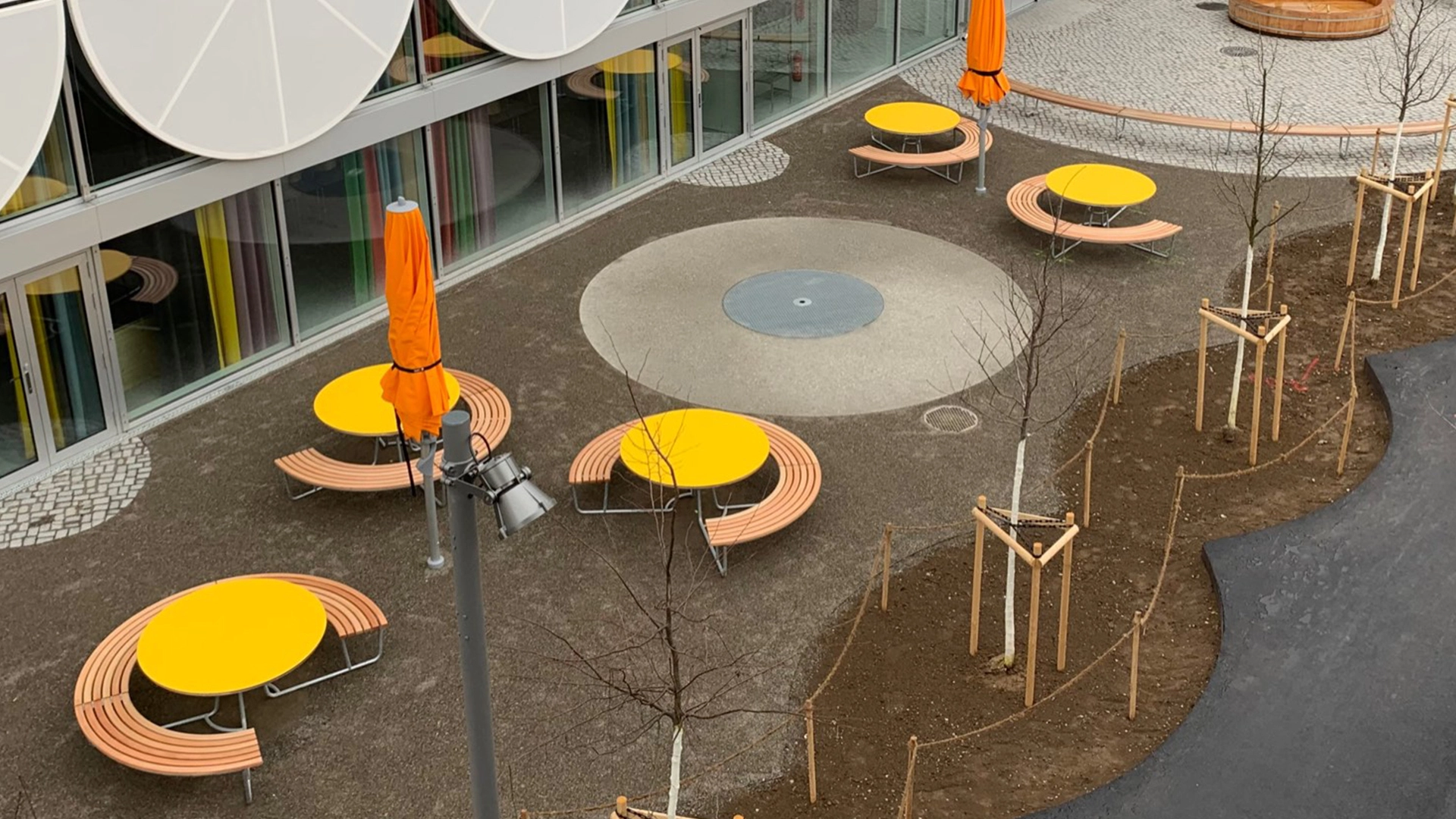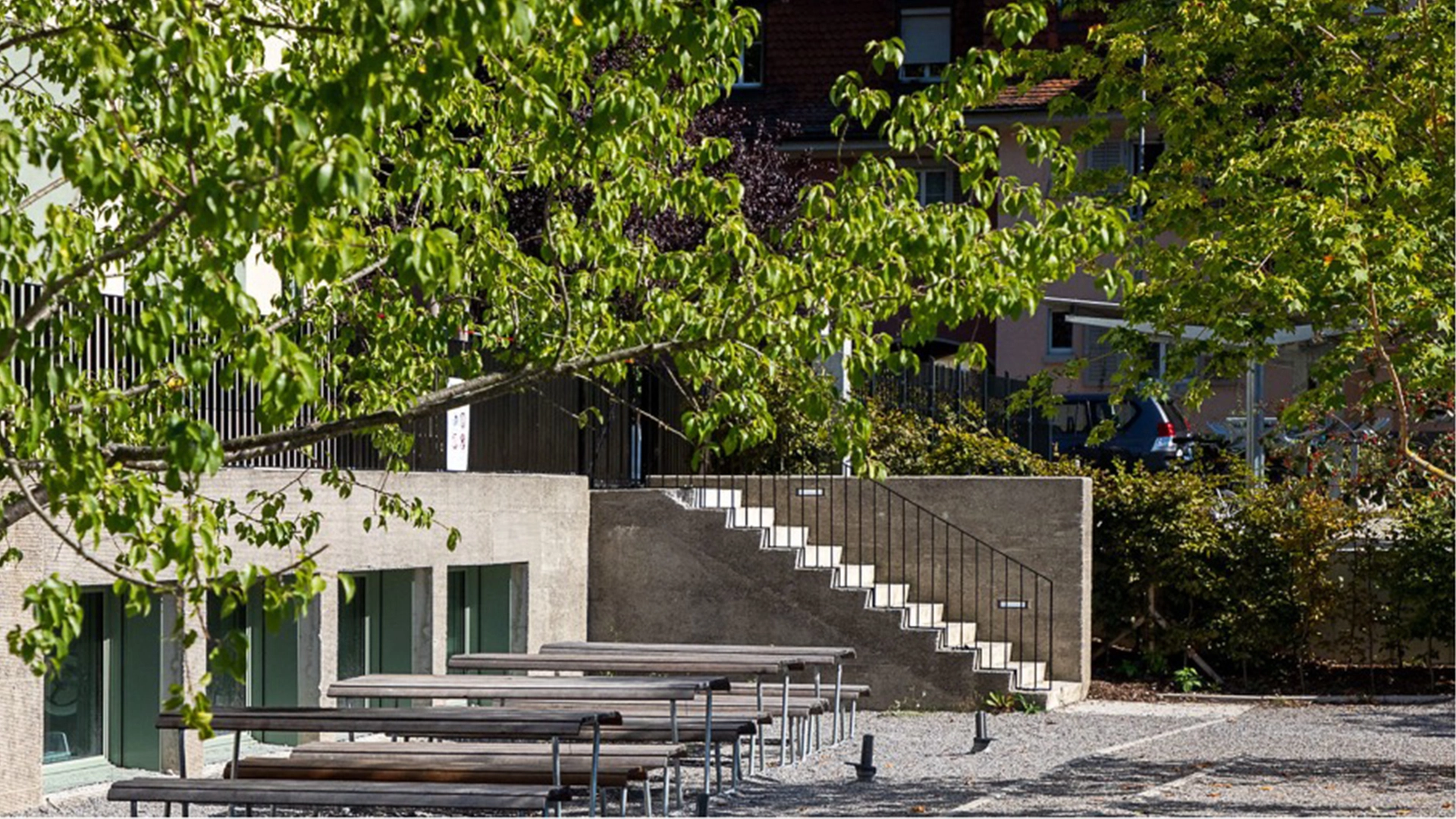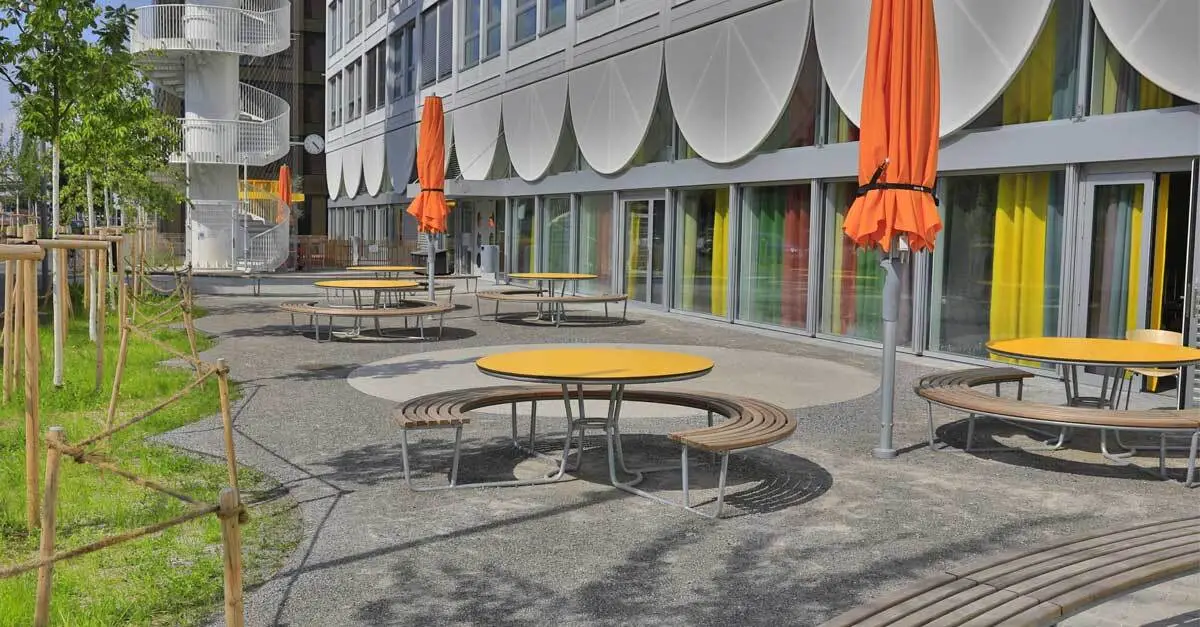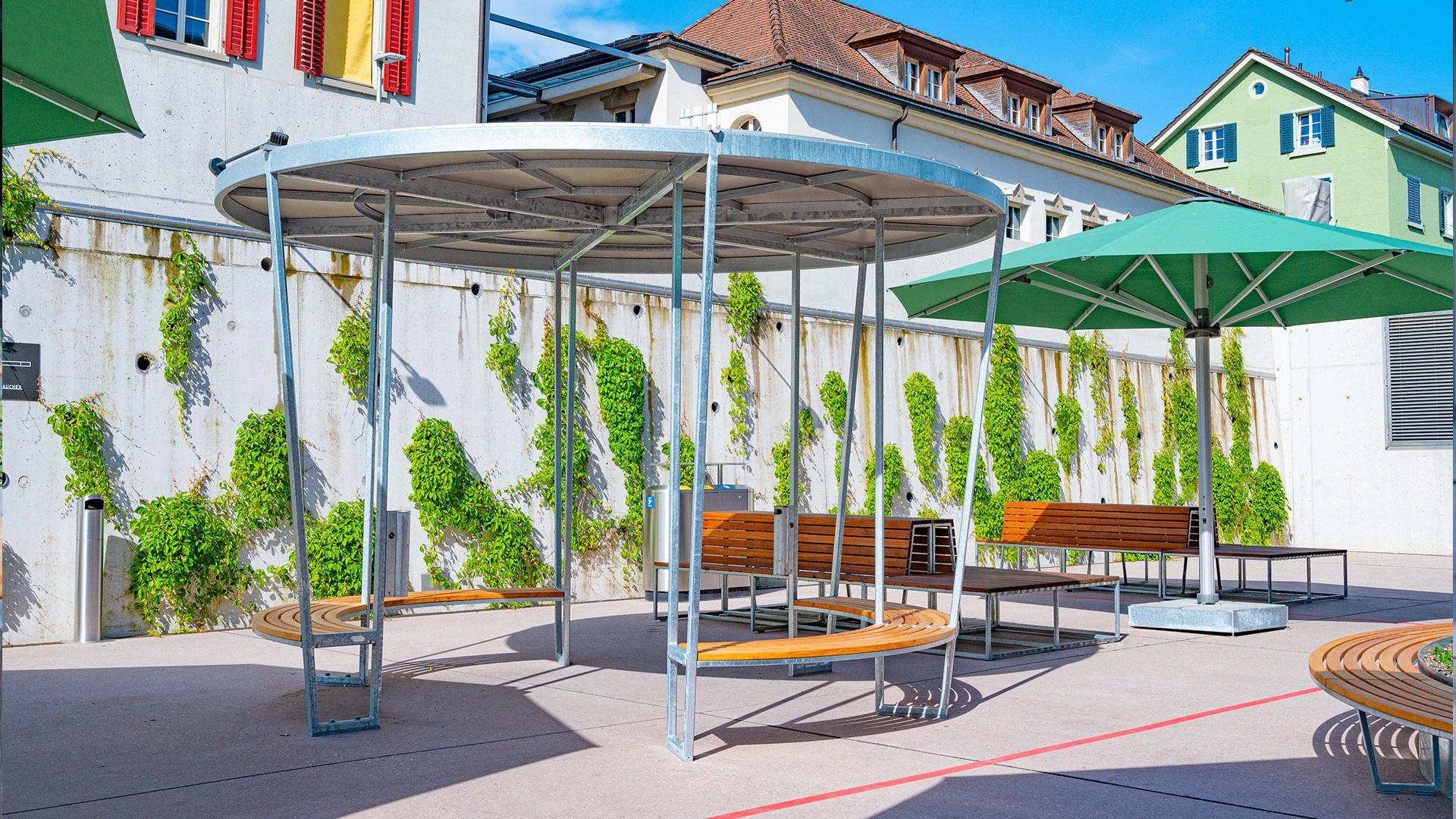Many learning activities in kindergarten and school take place indoors. However, the outdoor space of schools and the surrounding area offers a variety of opportunities to regularly shift learning events to the outdoors. This gives children the opportunity to live out their natural urge to move, play and discover. The prerequisite for this is appropriately equipped outdoor spaces and playgrounds so that regular lessons can be moved outdoors whenever the weather permits. A schoolroom in the green, so to speak.
BURRI offers a wide range of outdoor furniture suitable for outdoor lessons. Our specialists for furnishing public spaces have many years of experience in designing and implementing outdoor classrooms for kindergartens and primary schools. Secondary and tertiary schools are also keen to provide the best possible support for their students while making a variety of learning spaces available. Many projects are developed in close cooperation with renowned architectural firms, often in the implementation of award-winning works from architectural competitions. In many European countries it has always been customary for children to spend the whole day in the crèche, kindergarten or school. With both parents increasingly working, this is also becoming more common in Switzerland: many municipalities have introduced the day school model in recent years. As a consequence, the demands on the facilities of the institutions are also changing. Numerous catering kitchens, dining halls and after-school care rooms have been built. The outdoor spaces also have to be adapted to the new usage concept. This is an opportunity for the schools to use synergies and at the same time to create the infrastructure for productive outdoor teaching.
Learning outdoors not only involves a change of learning environment, but also opens up a variety of developmental stimuli that are important for holistic learning and opening up the living environment.3
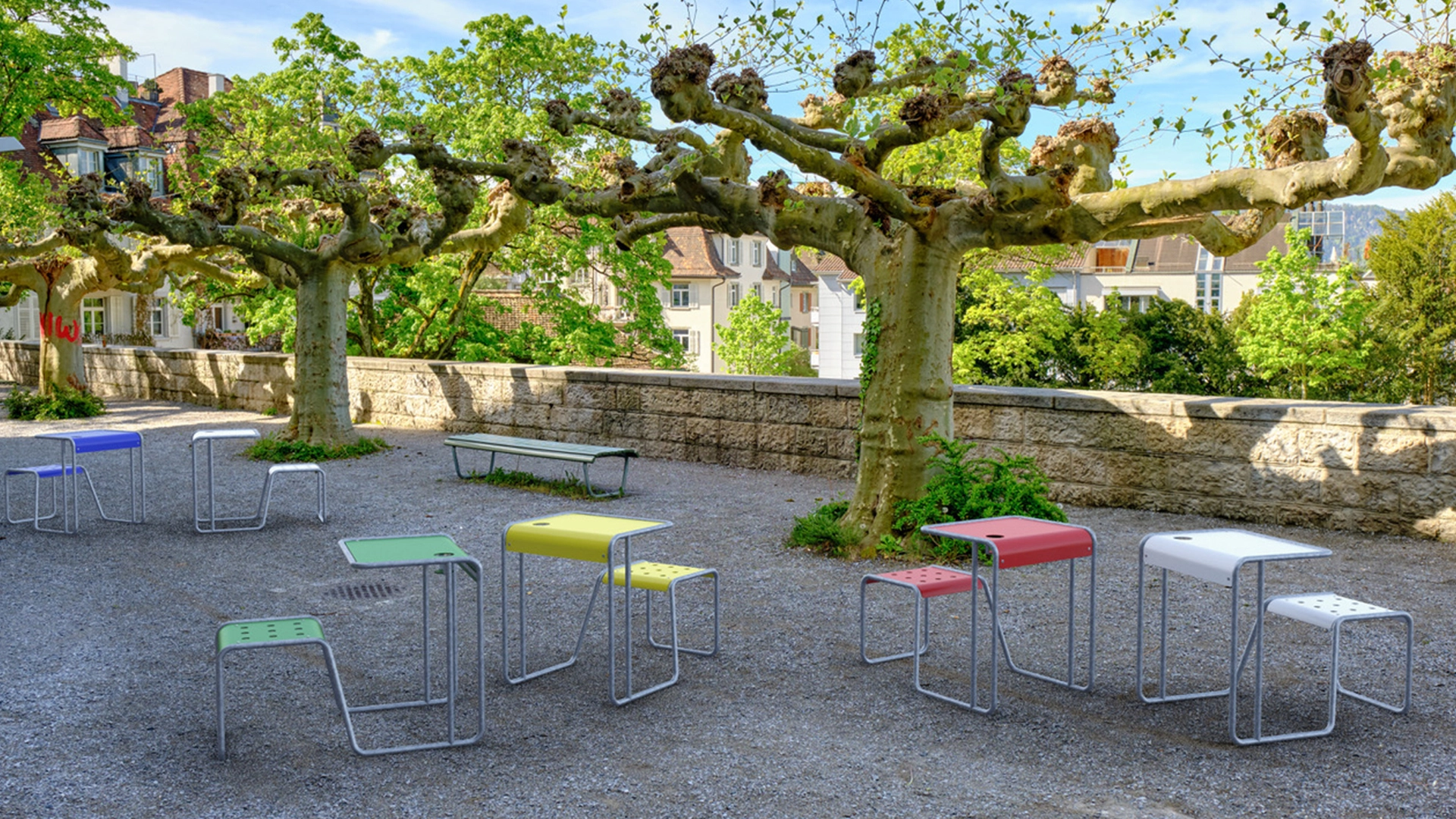
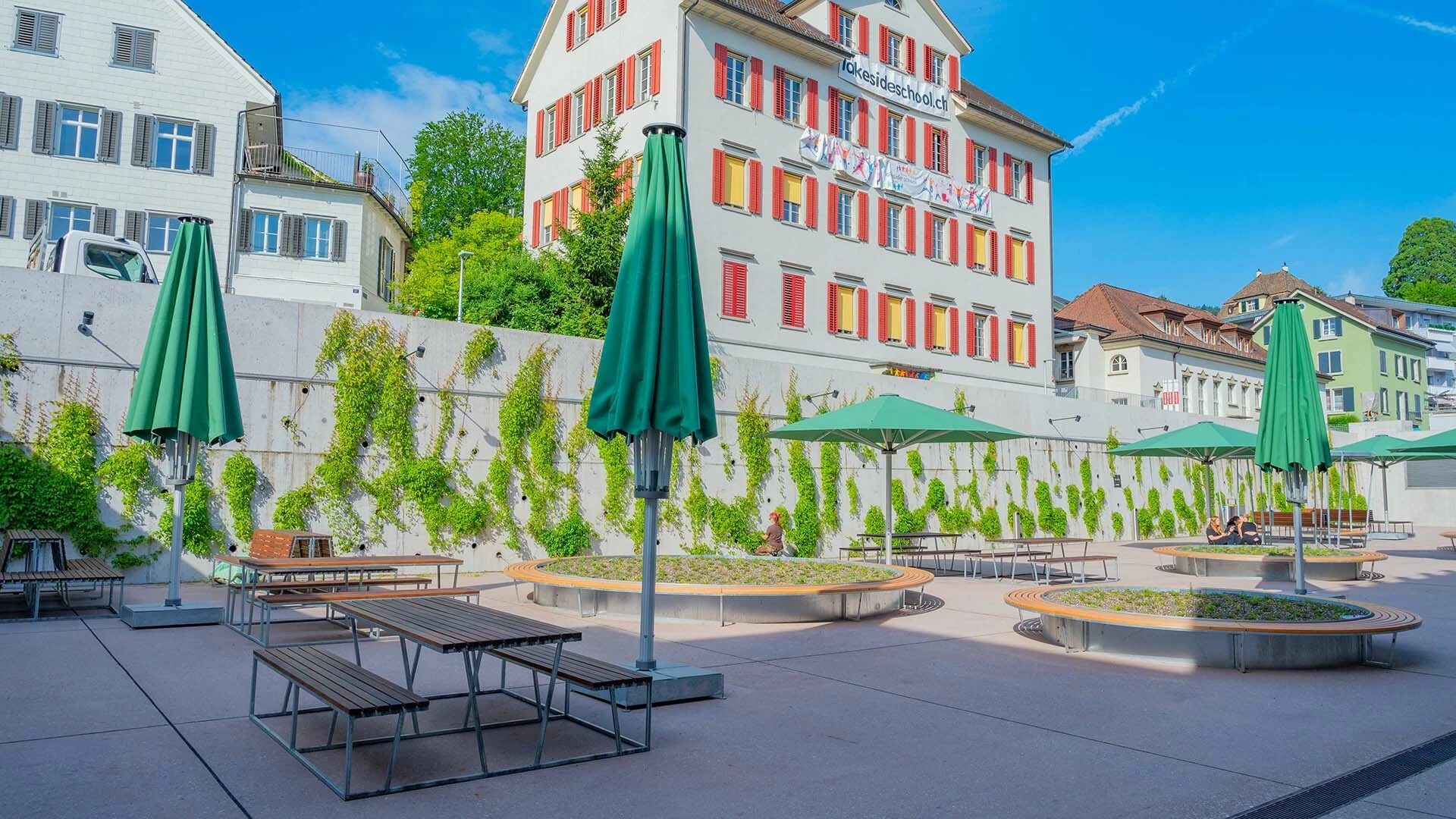
The Corona Pandemic 2020 with lockdown and school closures remains unforgotten. How happy we all were during this time to at least be able to meet with other people outside!
Exploring, playing and competing together in the open air promotes not only motor skills but also fundamental self- and social experiences that are indispensable for children's personality development and health promotion.
Scientific findings show: Teaching outdoors and regularly spending time outdoors have a positive effect on children's physical activity, motor skills, ability to concentrate and cooperate, well-being, environmental behaviour and closeness to nature, among other things.1
Children who are frequently outdoors move more, play more diversely, are socially very interactive and show improved self-perception and mental health.
However, learning outdoors not only has positive effects on the children, but also means added value for the teachers. Many teachers experience the children differently outdoors than indoors and discover new competences.2 Many teachers feel less exhausted after a day outdoors than after a day in the classroom.
According to today's competency-based curricula, the primary educational task of schools is to provide learners with diverse, cultural and subject-related experiences. In addition, basic subject-specific and interdisciplinary competences are to be built up and their cultural identity and sense of responsibility towards their fellow human beings and the environment are to be promoted. In this process of development and promotion, learning in extracurricular spaces of experience also plays an important role. The regular use of learning places outside the classroom is an important prerequisite for this.
As a competence centre for public space, the BURRI team is pleased to make a valuable contribution to the successful education of many children, young people and adults here.
Do you have an idea or a project for a "green classroom"?
Contact us. We will be happy to advise you.
Sources:
https://www.mobilesport.ch/akt...
1: Tremblay et al., 2015; Gray et al., 2015; Mygind et al., 2019; Chawla, 2020; Herrington & Brussoni, 2015; Becker et al., 2017
2: Barfod 2022
3 Kühnis et al. 2022
